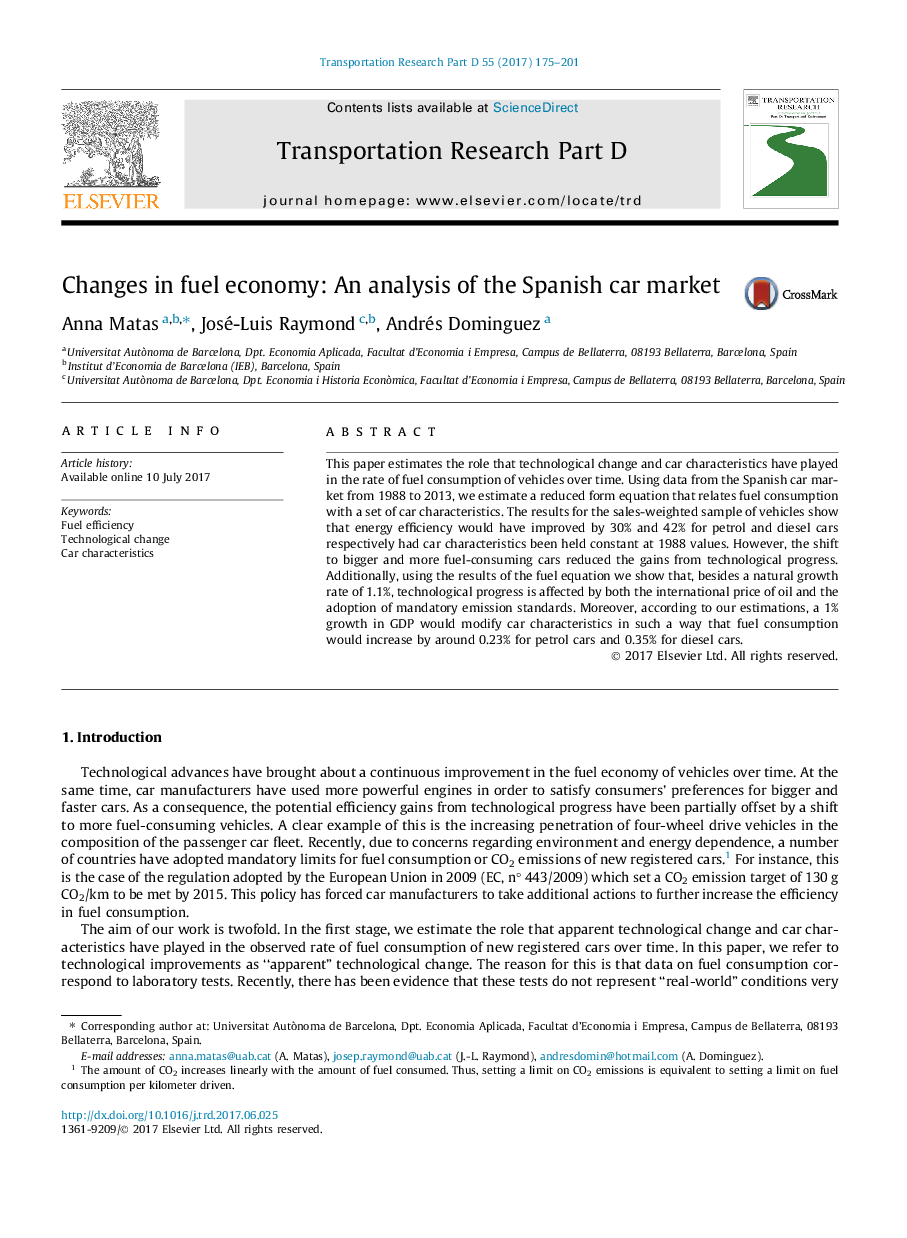| Article ID | Journal | Published Year | Pages | File Type |
|---|---|---|---|---|
| 5119374 | Transportation Research Part D: Transport and Environment | 2017 | 27 Pages |
â¢Energy efficiency of petrol and diesel cars has improved by 32% and 40%.â¢The shift to bigger cars has reduced the observed gains from apparent technological progress.â¢We estimate a natural growth rate of 1.1% of apparent technological change.â¢Oil price and mandatory emission standards affect apparent technological progress.â¢The elasticity of fuel consumption with respect to GDP ranges between 0.23 and 0.35%.
This paper estimates the role that technological change and car characteristics have played in the rate of fuel consumption of vehicles over time. Using data from the Spanish car market from 1988 to 2013, we estimate a reduced form equation that relates fuel consumption with a set of car characteristics. The results for the sales-weighted sample of vehicles show that energy efficiency would have improved by 30% and 42% for petrol and diesel cars respectively had car characteristics been held constant at 1988 values. However, the shift to bigger and more fuel-consuming cars reduced the gains from technological progress. Additionally, using the results of the fuel equation we show that, besides a natural growth rate of 1.1%, technological progress is affected by both the international price of oil and the adoption of mandatory emission standards. Moreover, according to our estimations, a 1% growth in GDP would modify car characteristics in such a way that fuel consumption would increase by around 0.23% for petrol cars and 0.35% for diesel cars.
